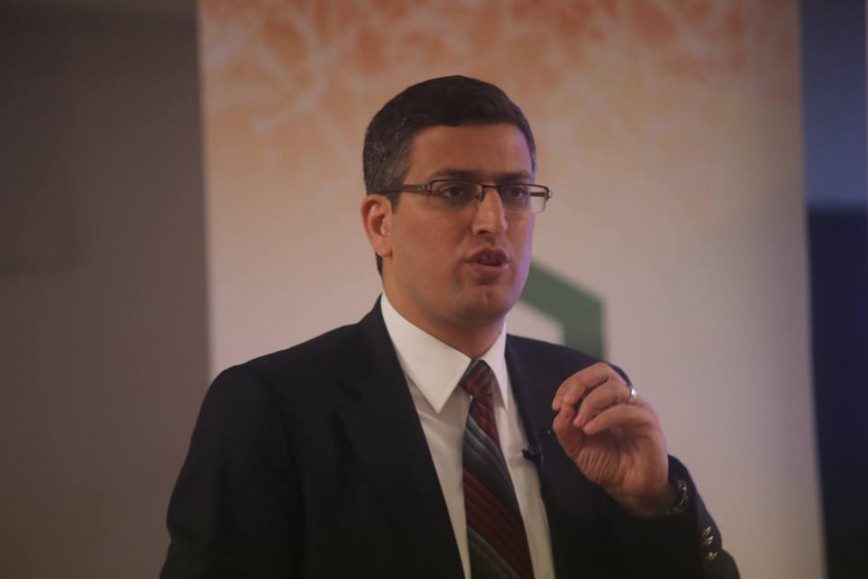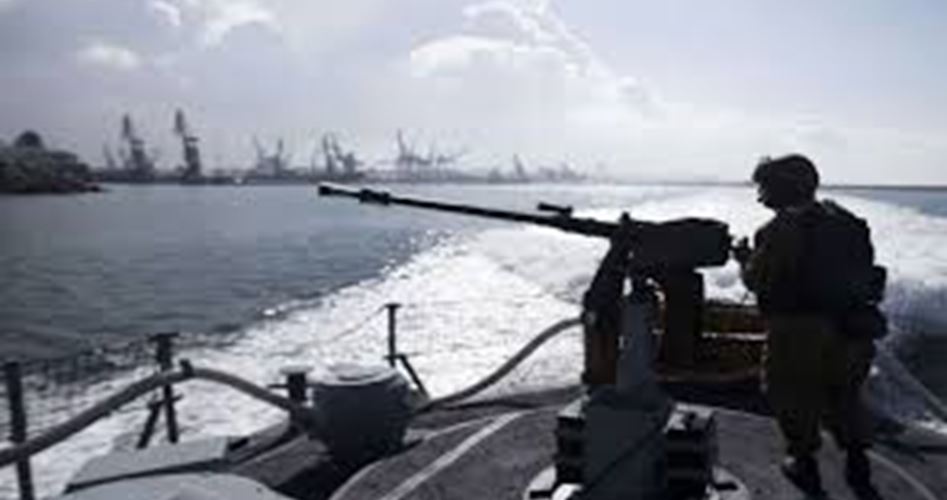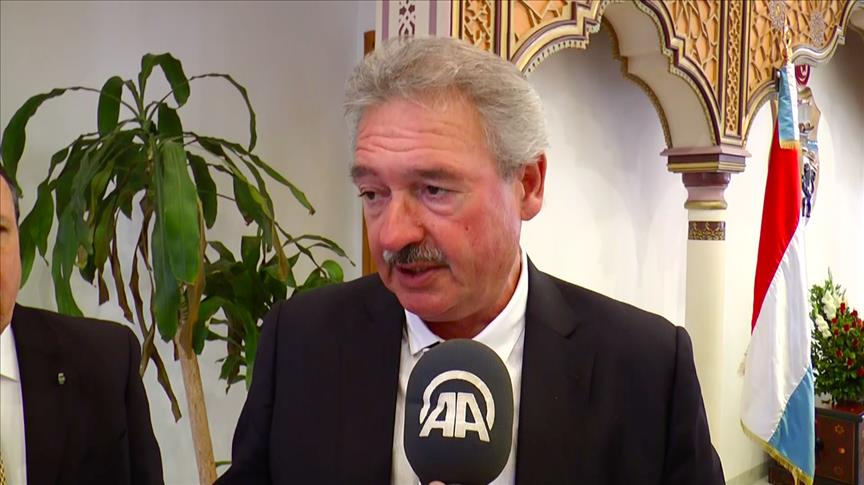
By: Dr. Said al-Haj*
As expected, it appears that the process of diplomatic estrangement between Turkey and the Zionist entity, which extended over a full six years since the attack on the ship “Mavi Marmara”, has reached its last station with the last round of bilateral negotiations between the two countries on Sunday.
It also seems that the Turkish political and media circles are not in a hurry to comment on the matter, regarding what was aired by the occupation media. In my opinion, this is directly related to the refusal of a wide range of Turkish sectors of this convergence. This is, primarily, because of partisan harassment; secondly because of the hatred to the occupation, especially after the killing of ten Turkish activists; and thirdly because of the high ceiling established by the Turkish leaders in the midst of rhetoric and electoral campaigns, and internal and external marketing.
Therefore, the Turkish government has announced the intention of Prime Minister Binali Yildirim to organize a press conference to talk about the “stage that the negotiations with “Israel” has reached, on Monday, of course after the publishing of this article, where Yildirim may not talk about “a deal that has been reached”, but about “a progress” in the negotiations.
I say this “as expected”, ruling out any surprise or shock of the matter because the two parties have been seeking this reconciliation for some time. In fact, there was no objection in principle from either of them, but it was always dependent on -since the first months of estrangement- the negotiating terms and details. Turkey wants a rapprochement with Tel Aviv for several reasons, in the forefront of which is its isolation in the region, the change of the circumstances in the region, its failure in the Syrian file, the crisis with Russia, and the Kurdish threat both at home and abroad. The Israeli entity is also in desperate need of allies in the region and of intelligence cooperation with Turkey which it has missed for years, under the state of liquidity that the region is witnessing in general.
Turkey had stipulated three conditions for the return of the diplomatic relations with Tel Aviv (The trade relations have continued and grown) i.e. Israel’s apology, compensations for the families of the martyrs, and lifting the siege on the Gaza Strip, as the Turkish martyrs have ascended aboard a ship that was trying to lift it. Ankara has maintained its own terms and hardened around them for three years, but the year 2013 -the year of decline in the region – carried a variable in the Turkish position. Erdogan accepted Netanyahu’s apology on the phone after it was required to be written and in public. Then, Turkey accepted that the “compensation” formula be transformed from a political, criminal and legal responsibility of the occupation to a “Fund” formula for distributing money to the families of martyrs, in return for the abolition of all lawsuits in Turkey against Zionists officials !!
These “concessions” in the two conditions relating to the Turkish interests and the direct relations with the occupation were enough to anticipate similar declines in the third condition, which regards theoretically a third party in the equation, meaning to reach a compromise between the full “break” of the blockade, which the state of occupation will not accept and the full “abandoning” of this condition, which Turkey cannot allow.
There are many items that have been circulating in the media which are difficult to evaluate before they are officially announced, but they will not stray too far from what has been published (it is closer to the draft which was negotiated in the last round) and will not depart from the context of the normalization of relations, restoration of ambassadors, and cooperation in international organizations, and in the field intelligence.
This is in regard to the direct bilateral relations, but on the Palestinian level, I assume that the Zionist entity has got what it wanted of “preventing the planning of military operations against it from the Turkish territories” (which is a foregone conclusion) in exchange for facilities given to Ankara to contribute to “procedures to ease the blockade,” such as giving Turkey a special status in the electricity, water, energy and reconstruction files …etc.
Some speak about the “pros” of the agreement, from the angle of the Palestinian issue. In fact, such pros are already existing as it is the case in any political position or decision, which could include measures to ease the blockade as well as the possibility of Turkey’s playing down a pressurizing role on the occupation and its stances afterward. But, these presumed “pros” are nothing compared to the strategic losses of the convergence of a Muslim country in the size of Turkey with the state of occupation, and the return of the intelligence and military coordination between them, as well as breaking the psychological barrier which has been established in the Turkish people over the years. Also, the cons included the “cooperation” between the two sides in the international institutions, which had actually started before the conclusion of the agreement when Turkey lifted the “veto” on the participation of the Israeli entity in NATO exercises. Also, Turkey participated in the Western Europe committee’s nomination of its (Israel’s) candidate for the presidency of the United Nations’ legal committee, which came later on !!
The second significant remark regarding the “positive” procedures about the siege on the Gaza Strip is that they are much lower than the ceiling of “breaking” the blockade or even “easing” it, as they are related exclusively to the topic of the “ban on goods” in and out, and not the “siege” of the people and their freedom of movement, taking into consideration that an important part of the siege is linked to the Egyptian side, of course.
The third important point in this context is that these measures are temporary and the occupation can easily turn against them, freeze them, or manipulate them under any excuse or even without excuse as is used to. And then, we cannot imagine that Turkey would cut the ties with Israel again because it violated one of the terms of the agreement. The blockade would be then returned to its first position while the diplomatic relations are ongoing between the two sides.
So, from a strategic and practical point of view, we cannot predict any good out of this supposed agreement, either to Turkey or to the Palestinian cause. The relationship with the state of occupation is pure evil, as well as the fact that the supposed agreement is a regression in the curve of relations between the two sides (this time it is upwards), and thus there is no great value of any fringe, narrow and temporary benefits – real or imagined – which might be achieved.
Finally, all of this does not mean that Turkey is going to shun its past and the long years in which it established its foreign policy towards the Palestinian issue. It does not also mean that it will turn 180 degrees with respect to the Palestinians and Hamas in particular. But it also means that the compass of the Turkish foreign policy is going in a different direction this time – as we have written and warned repeatedly – which puts everyone to their responsibilities for adjusting this compass (by preventing its full rotation) in the future, as well as attempting to return it to what it always used to be.
* Said al-Haj is a Palestinian doctor, writer, and a researcher in the Turkish issues.
(Published by the Araby21, on Monday, June 27, 2016, and translated for MEO)



